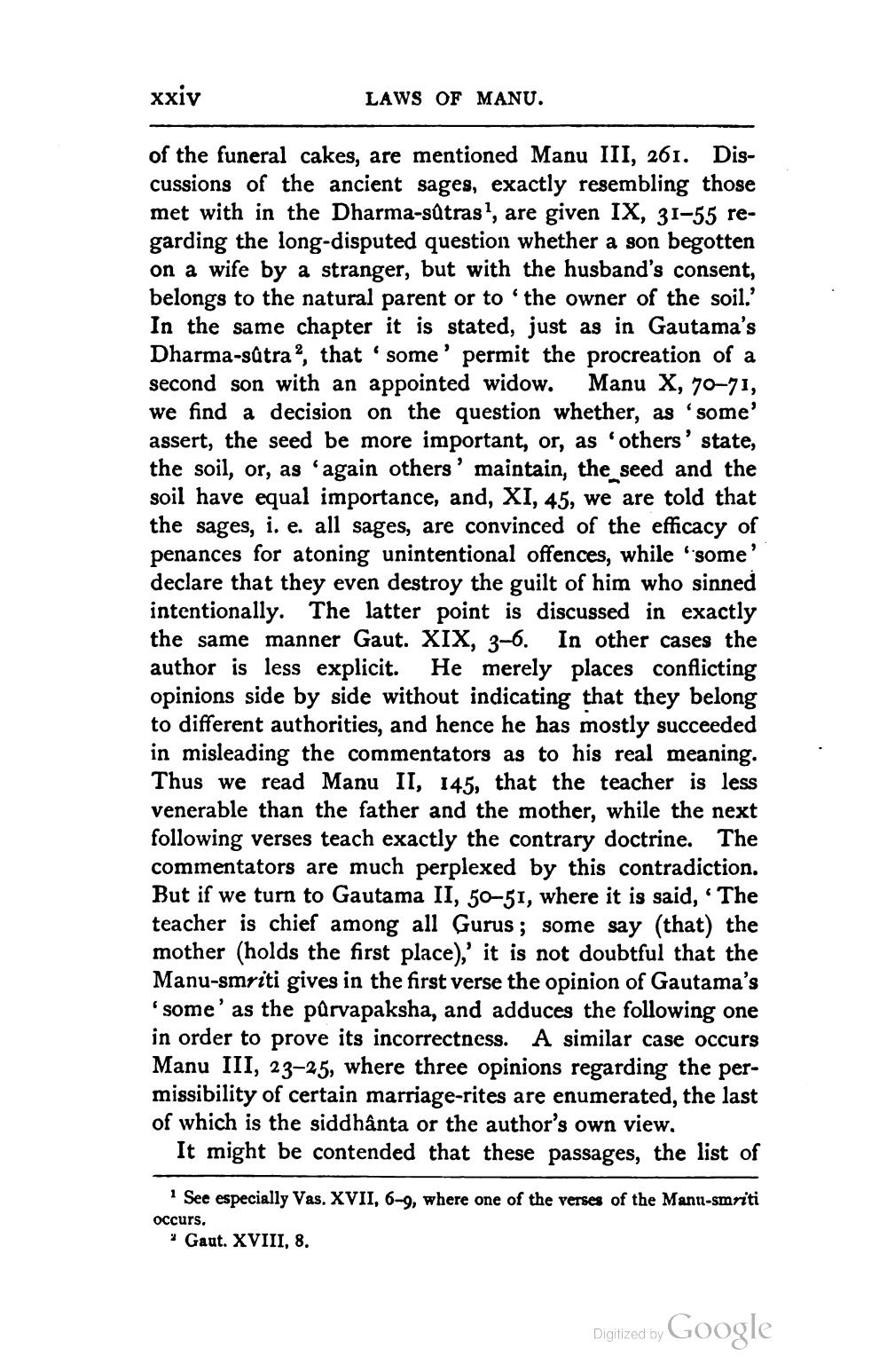________________
xxiv
of the funeral cakes, are mentioned Manu III, 261. Discussions of the ancient sages, exactly resembling those met with in the Dharma-sûtras1, are given IX, 31-55 regarding the long-disputed question whether a son begotten on a wife by a stranger, but with the husband's consent, belongs to the natural parent or to the owner of the soil.' In the same chapter it is stated, just as in Gautama's Dharma-sûtra, that some' permit the procreation of a second son with an appointed widow. Manu X, 70-71, we find a decision on the question whether, as 'some' assert, the seed be more important, or, as 'others' state, the soil, or, as 'again others' maintain, the seed and the soil have equal importance, and, XI, 45, we are told that the sages, i. e. all sages, are convinced of the efficacy of penances for atoning unintentional offences, while "some' declare that they even destroy the guilt of him who sinned intentionally. The latter point is discussed in exactly the same manner Gaut. XIX, 3-6. In other cases the author is less explicit. He merely places conflicting opinions side by side without indicating that they belong to different authorities, and hence he has mostly succeeded in misleading the commentators as to his real meaning. Thus we read Manu II, 145, that the teacher is less venerable than the father and the mother, while the next following verses teach exactly the contrary doctrine. The commentators are much perplexed by this contradiction. But if we turn to Gautama II, 50-51, where it is said, 'The teacher is chief among all Gurus; some say (that) the mother (holds the first place),' it is not doubtful that the Manu-smriti gives in the first verse the opinion of Gautama's 'some' as the purvapaksha, and adduces the following one in order to prove its incorrectness. A similar case occurs Manu III, 23-25, where three opinions regarding the permissibility of certain marriage-rites are enumerated, the last of which is the siddhânta or the author's own view.
It might be contended that these passages, the list of
LAWS OF MANU.
1 See especially Vas. XVII, 6-9, where one of the verses of the Manu-smriti
occurs.
"Gaut. XVIII, 8.
Digitized by
Google




